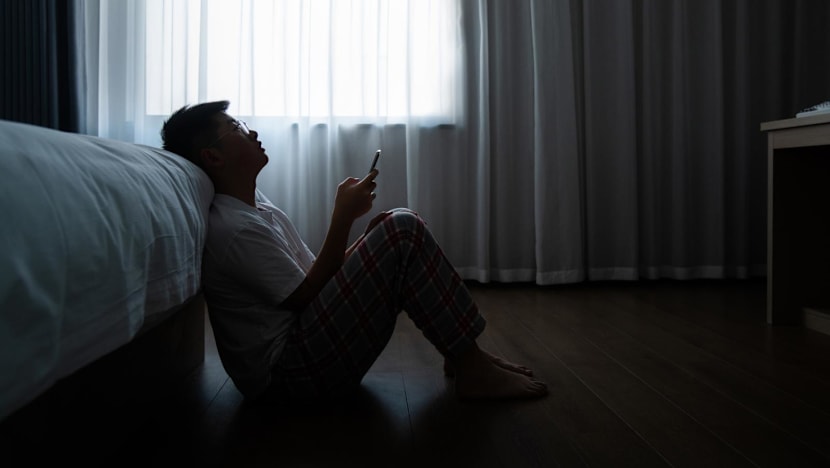Politics
Young Lives Lost: Addressing Teenage Suicide in Singapore

The tragic reality of teenage suicide is underscored by the heart-wrenching account of a father, whose son took his own life at just 17 years old. The boy, referred to as “Sean’s son” to protect his family’s privacy, struggled silently with mental health issues, highlighting a crisis that is deeply rooted in modern society. On September 10, as the world recognized Suicide Prevention Day, a stark statistic emerged: according to a recent report from the World Health Organization, suicide accounts for one in every 100 deaths globally, with 20 attempts made for every death.
In Singapore, the situation is particularly alarming. Recent figures from the Samaritans of Singapore indicate that suicide is the leading cause of death among individuals aged 10 to 29. Last year, 69 individuals in this age bracket lost their lives to suicide, making up 22 percent of all such deaths. These statistics echo a growing concern about mental health among young people, a sentiment echoed by Sean, who reflected on the “earthquake” that shattered his family.
Impact of Social Media on Youth Mental Health
In an effort to delve deeper into this issue, a two-episode podcast series by CNA explores the mental health challenges faced by youth in Singapore. Conversations with parents, students, and mental health professionals reveal a striking insight: while social media connects young people, it also complicates their ability to form meaningful friendships.
Dr. Vivien Yang, a clinical psychologist at Bloom Child Psychology, noted that many young individuals struggle to identify someone they can confide in. “When you ask (young people) who they’d go to if they just wanted to talk about something they were really troubled about, they would say ‘no one’,” she explained. This lack of connection is exacerbated by demanding schedules filled with tuition, enrichment classes, and sports, leaving little room for genuine interaction.
Furthermore, the preference for texting over face-to-face communication can hinder the depth of relationships. Dr. Daniel Fung, CEO of the Institute of Mental Health, emphasized that forming friendships is not instinctual for everyone. “Not everyone has the natural instinct to communicate,” he stated. “Some people are rather shy, so you have to give them time and space.”
The Loneliness Epidemic Among Youth
The phenomenon of loneliness among young people is alarming. A study conducted in 2021, which analyzed data from over a million teenagers across 37 countries, found that the number of adolescents feeling lonely at school nearly doubled between 2000 and 2018. This rise coincided with the increased use of smartphones, creating a paradox where youth have thousands of online “friends” but lack real-life connections.
Dr. Fung described the vulnerability involved in building friendships, noting that it requires a degree of bravery to share personal experiences. “Overcoming that kind of vulnerability is what helps build strong bonds,” he explained. The absence of similar experiences makes it challenging for young people to develop social resilience, which is essential for navigating life’s challenges.
The contrasting experiences of past generations highlight the shifts in social interaction. For many, childhood friendships were forged in unstructured play, allowing for the natural development of social skills. The current generation, however, often misses out on these formative experiences due to overly scheduled lives and the prevalence of digital communication.
Dr. Fung posed a critical question: “What’s the use of being the top in PISA tests and not being able to care for your fellow human being, or not having a friend?” This highlights the need for extended “hang out” time with friends, which may seem inefficient in today’s fast-paced world, but is vital for fostering supportive relationships.
As society continues to grapple with the mental health crisis among youth, it is essential to recognize the importance of genuine connections. Encouraging unstructured time for children and allowing them to cultivate friendships may provide the support they need when faced with life’s storms. The journey towards understanding and addressing the mental health crisis among young people is complex, yet it remains crucial for safeguarding their futures.
For those seeking help, resources are available, including the National Mental Health Helpline at 1771, the Samaritans of Singapore Hotline at 1767, and the Singapore Association for Mental Health Helpline at 1800 283 7019. Immediate assistance can also be sought by contacting local emergency medical services.
-

 Lifestyle4 months ago
Lifestyle4 months agoHumanism Camp Engages 250 Youths in Summer Fest 2025
-

 Business5 months ago
Business5 months agoKenvue Dismisses CEO Thibaut Mongon as Strategic Review Advances
-

 Sports4 months ago
Sports4 months agoDe Minaur Triumphs at Washington Open After Thrilling Comeback
-

 Sports5 months ago
Sports5 months agoTupou and Daugunu Join First Nations Squad for Lions Clash
-

 Top Stories5 months ago
Top Stories5 months agoColombian Senator Miguel Uribe Shows Signs of Recovery After Attack
-

 World5 months ago
World5 months agoASEAN Gears Up for Historic Joint Meeting of Foreign and Economic Ministers
-

 Health4 months ago
Health4 months agoNew Study Challenges Assumptions About Aging and Inflammation
-

 Business5 months ago
Business5 months agoOil Prices Surge Following New EU Sanctions on Russia
-

 Entertainment4 months ago
Entertainment4 months agoDetaşe-Sabah Violin Ensemble Captivates at Gabala Music Festival
-

 Entertainment4 months ago
Entertainment4 months agoBaku Metro Extends Hours for Justin Timberlake Concert
-

 Top Stories5 months ago
Top Stories5 months agoRethinking Singapore’s F&B Regulations Amid Business Closures
-

 Business5 months ago
Business5 months agoU.S. House Approves Stablecoin Bill, Sends to Trump for Signature









